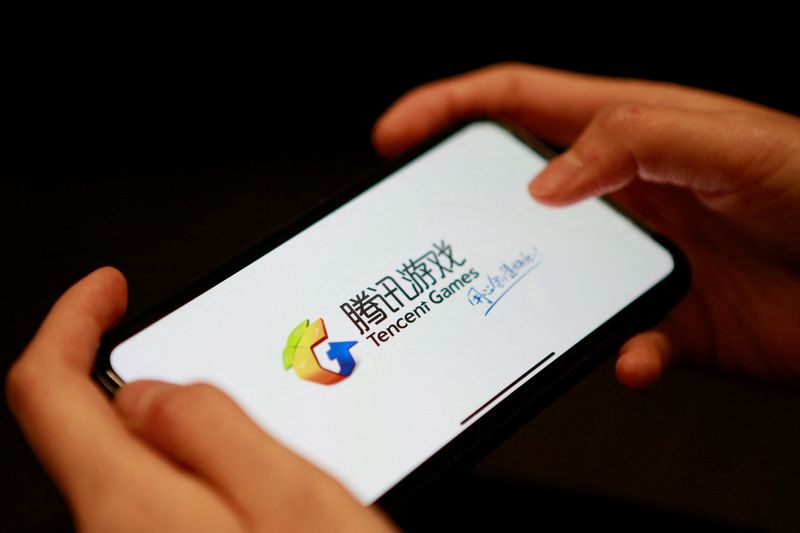By Josh Ye
HONG KONG (Reuters) - Tencent halted the development of a highly anticipated mobile game based on Square Enix's "Nier" franchise in December, according to three people with knowledge of the matter, marking a setback in the Chinese gaming giant's hunt for new hits.
Shenzhen-based Tencent cancelled the project that had been in the works for nearly two years in part because it struggled to find a compelling monetisation model given the expensive development costs and franchise rights, according to the people, who were not authorised to speak publicly.
Tencent and Tokyo-based Square Enix, also the developer of the popular "Final Fantasy" franchise, declined to comment.
Square Enix said last year that "Nier: Automata", the latest game in the "Nier" franchise where one plays as a humanoid robot battling alien machines, had sold over 7.5 million copies since its 2017 release for computers and consoles.
The mobile game's cancellation shows cracks in Tencent's decade-long strategy of turning hits on consoles and personal computers into mobile games.
The world's biggest gaming company had gone on a spending spree signing licensing deals with popular franchises, where in many cases it was willing to pay owners an extra premium in order to outbid rivals like NetEase (NASDAQ:NTES).
Chairman Pony Ma said on Monday that Tencent's gaming business, which accounts for more than 30% of revenue, was under threat because some of its recent games had fallen short of expectations.
The "Nier" mobile game's development had made significant progress before it was axed, including a playable internal demo that showcased its robust designs in both story and combat, one of the people said.
The cancellation of "Nier" has not led to any job losses because employees are allowed to transfer to other Tencent units, the people said.
HIGH ROYALTY FEES
Mobile games adapted from famous computer and console games, known as intellectual property (IP) games, often entail hefty fees to IP owners, in this case to Square Enix.
Royalty fees of 15% to 20% of sales are typical, the people said, while Apple (NASDAQ:AAPL)'s App Store takes a 30% cut and marketing and user acquisition can cost another 30% to 40%, leaving slim profit margins.
As growth in mobile games slows and development costs rise, Tencent is finding that many IP games are becoming too expensive to pursue, the people said.
One of the people said that Tencent was only willing to pay royalty fees below 10% in recent negotiations with IP holders.
In previous years, Tencent had successfully adapted famous games such as South Korean developer Krafton's "PlayerUnknown's Battlegrounds", also called PUBG, for mobile devices. PUBG Mobile, released in 2018, has been one of Tencent's most profitable games ever.
But Tencent has struggled to find a new global hit from an IP game since "League of Legends: Wild Rift" in 2020. That game's IP was owned by Tencent subsidiary Riot Games.

Meanwhile, competitors such as miHoYo and NetEase have found massive success with hits based on their own IP games such as "Genshin Impact" and "Eggy Party", putting further pressure on Tencent.
The Chinese company is hoping to revive its fortunes with a slate of other IP games for smartphones waiting to be launched this year or in 2025, including "Delta Force", "Need for Speed" and "Assassin's Creed".